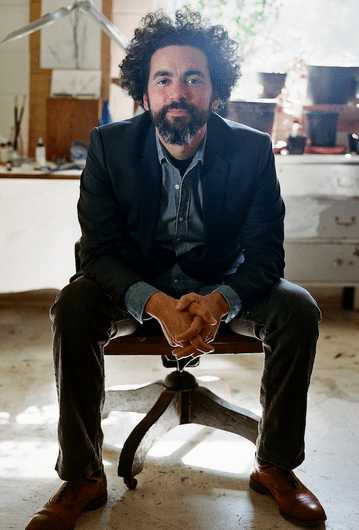 What if we take this sentence in its full force: “Jesus is the Savior of the world”? Yes, some balk because “Savior” conjures up some goofy experiences, manipulative to be accurate, with salvation messages and gospel invitations and talking Savior means not talking Lord, and talking Savior means no kingdom but heaven-when-we-die. OK, I get that, and so does Brian Zahnd in his book Farewell to Mars. Brian is an intelligent, creative man — together they merge into this splendid book.
What if we take this sentence in its full force: “Jesus is the Savior of the world”? Yes, some balk because “Savior” conjures up some goofy experiences, manipulative to be accurate, with salvation messages and gospel invitations and talking Savior means not talking Lord, and talking Savior means no kingdom but heaven-when-we-die. OK, I get that, and so does Brian Zahnd in his book Farewell to Mars. Brian is an intelligent, creative man — together they merge into this splendid book.
He really believes Jesus is the Savior of the world. He didn’t always understand the gospel that way, so we read this from pp. 53-54:
As a zealous American evangelical, I spent plenty of time peddling “the bus ride to heaven” reduced version of the gospel. I can tell you it’s a pretty easy sell. You promise the moon (actually heaven) for the low one-time cost of a sinner’s prayer. How hard is that? And since it mostly applies to the next life, why wouldn’t you pray the prayer? If for no other reason than as a kind of afterlife insurance. Oh, yes, we did offer the optional discipleship package for those wanting to upgrade their Christian experience. But the important thing was to fill up the bus for the postmortem ride to heaven. …
But plenty of people made decisions and prayed the prayer. As the saying goes, you can’t argue with the numbers. (Actually you can argue with the numbers — that’s what prophets do all the time.)
It was a happy day for me when I read Brian’s mind shifted on the gospel by reading the gospel sermons in Acts, for the same happened to me.
He says Jesus doesn’t save us from the world but for the world; I can buy this as long as “world” gets defined well; in one way he says us from the world and worldliness, which is the essence of Brian’s book, and in another sense he saves us for the world in order to confront and offer the world it’s true Lord, Jesus.
This gospel has an eschatology of hope, a new Jerusalem less than an Armageddon. He sees a theme in Emil Fackenheim’s To Mend the World that constitutes the gospel of hope, or in Hebrew tikkun olam, that we are called to participate with God in repairing the world.
The problem, of course, is that so few (he’s thinking here of evangelicals mostly, and some other-worldly saints in history) care about the world, about creation, about this world and see salvation and escape as the same thing. Not so, Brian says, the gospel we preach focuses on a Jesus who is Savior of the world.











